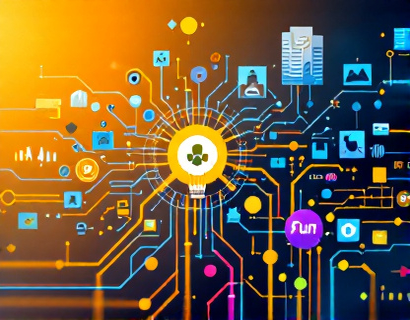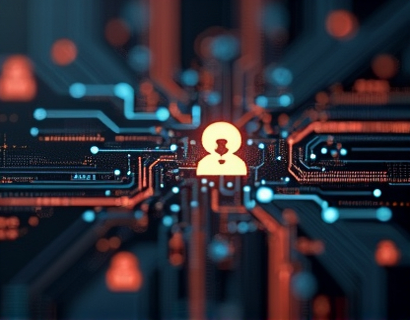Transforming Education with AI-Powered Chatbots: A Comprehensive Guide for Students, Families, and Educators
The integration of artificial intelligence in educational settings has opened new avenues for learning, making knowledge more accessible and personalized than ever before. Among these innovations, AI-powered educational chatbots stand out as a transformative tool, offering specialized insights tailored to the needs of students, families, and educators. This article delves into the capabilities and benefits of these chatbots, focusing on how they deliver industry-relevant knowledge and services through verified content, ensuring a safe and enriching educational experience for all users.
Understanding AI-Powered Educational Chatbots
AI-powered educational chatbots are sophisticated software applications designed to simulate conversation through natural language processing and machine learning algorithms. These chatbots are programmed to understand and respond to user queries with relevant and accurate information, adapting to the user's level of understanding and learning pace. Unlike traditional Q&A systems, these chatbots can engage in multi-turn conversations, providing step-by-step explanations and detailed insights on various topics.
Specialized Insights for Students
For students, AI chatbots serve as personalized tutors, offering support in subjects ranging from basic sciences to advanced mathematics and specialized fields like computer programming and engineering. These chatbots can break down complex concepts into understandable parts, providing examples and analogies to enhance comprehension. They can also guide students through problem-solving processes, offering hints and explanations to help them arrive at solutions independently. This interactive learning approach not only reinforces knowledge but also fosters critical thinking and problem-solving skills.
Resources for Families
Families play a crucial role in a child's educational journey, and AI chatbots can be invaluable resources for parents and guardians. These chatbots can provide insights into curriculum standards, learning milestones, and educational best practices. They can answer questions about how to support their child's learning at home, suggest educational activities, and offer tips for managing screen time and digital literacy. By keeping families informed and engaged, these chatbots help create a supportive learning environment both at home and school.
Support for Educators
Educators can leverage AI chatbots to enhance their teaching methods and improve student outcomes. These chatbots can offer lesson plan ideas, suggest educational resources, and provide real-time feedback on teaching strategies. They can also assist in grading and tracking student progress, freeing up time for more personalized interaction with students. For professional development, chatbots can recommend courses, webinars, and other learning opportunities to help teachers stay updated with the latest educational trends and technologies.
Ensuring Content Verification and Safety
A critical aspect of AI-powered educational chatbots is the assurance of content verification and safety. To maintain the integrity of the information provided, these chatbots are equipped with robust verification mechanisms. Content is cross-referenced with credible sources, ensuring accuracy and reliability. This is particularly important in educational settings where misinformation can hinder learning and lead to misunderstandings. Additionally, these chatbots are designed with safety features to protect users, especially children. They filter out inappropriate content and ensure that interactions remain within educational and safe boundaries.
Child-Friendly Versions for Young Learners
Recognizing the unique needs of young learners, some AI chatbots offer child-friendly versions that are both engaging and educational. These versions use simpler language, incorporate interactive elements like games and quizzes, and feature visually appealing designs. They are programmed to maintain a positive and encouraging tone, making learning a joyful experience for children. Parents and educators can rest assured that these chatbots are not only educational but also safe for young users.
Enhancing Learning Through Personalization
One of the most significant advantages of AI chatbots in education is their ability to personalize learning experiences. By analyzing user interactions and performance, these chatbots can tailor content to suit individual learning styles and paces. For instance, a student who struggles with a particular concept can receive additional explanations and practice problems, while a student who grasps the material quickly can be challenged with more advanced topics. This personalized approach helps in identifying and addressing learning gaps, thereby improving overall academic performance.
Promoting Collaborative Learning
AI chatbots can also facilitate collaborative learning by connecting students with peers who share similar interests or are working on the same topics. These chatbots can create discussion groups, organize virtual study sessions, and even facilitate project collaborations. By fostering a sense of community and cooperation, these chatbots help students develop essential social skills and a deeper understanding of the subject matter through peer interaction.
Integration with Existing Educational Platforms
To maximize their effectiveness, AI chatbots are often integrated with popular educational platforms and learning management systems. This seamless integration allows for a cohesive learning experience, where students can access chatbot assistance directly within their familiar environments. Whether it's through a school's learning portal or a widely used educational app, these chatbots can provide timely support and resources, enhancing the overall educational experience.
Challenges and Considerations
While AI-powered educational chatbots offer numerous benefits, there are also challenges and considerations to keep in mind. One key issue is the potential for over-reliance on technology, which can diminish the role of human interaction in learning. Educators must strike a balance by using chatbots as supplementary tools rather than replacements for human teachers. Additionally, ensuring data privacy and security is paramount, as these chatbots handle sensitive information about students and educators. Transparent policies and robust security measures are essential to build trust and confidence in these technologies.
Future Prospects
The future of AI-powered educational chatbots looks promising, with ongoing advancements in AI research and technology. As these chatbots become more sophisticated, they will be able to offer even more nuanced and context-aware interactions. The integration of augmented reality and virtual reality could further enhance the learning experience, making abstract concepts more tangible and engaging. The potential for AI chatbots to adapt to emerging educational needs and trends ensures their continued relevance and impact in the educational landscape.
Conclusion
AI-powered educational chatbots represent a significant leap forward in personalized and accessible learning. By providing specialized insights, verified content, and a safe learning environment, these chatbots support the educational journey of students, families, and educators alike. As technology continues to evolve, the role of AI chatbots in education will only grow, offering new opportunities for innovation and improvement in the way we learn and teach.











































